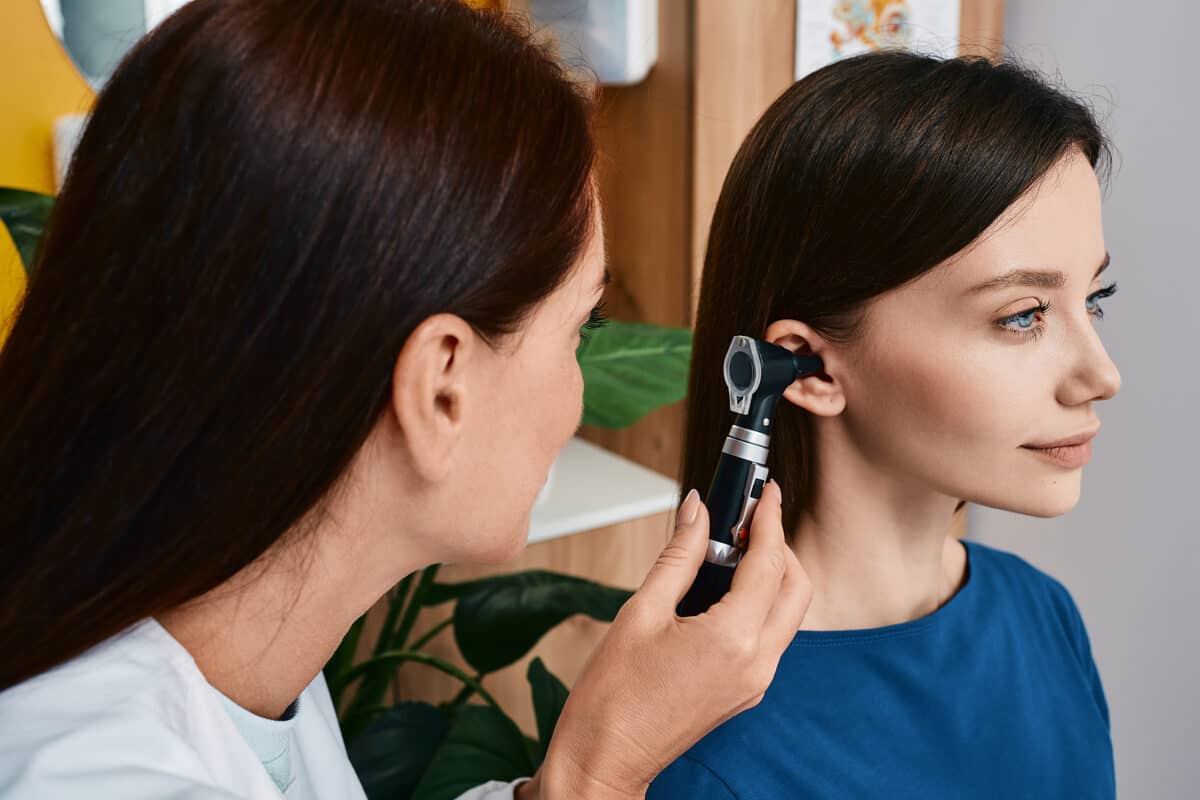- The Future of Hearing Health Research: Promising Breakthroughs - April 18, 2024
- Hearing Health in the Classroom: Strategies for Teachers and Students - April 6, 2024
- The Power of Bluetooth: A New Chapter in Hearing Aids - March 26, 2024
Perhaps one of the most important jobs an audiologist practice does in the world is to dispel common myths about hearing loss. While we’re all used to routine eye exams and other ways of tracking the health of our systems, we tend to ignore our hearing health.
A survey completed in 2021 from the American Speech-Language-Hearing Association showed that while 60 percent of people had their eyes examined in the previous five years, only about two in 10 people had their hearing checked.
How hearing loss works
There are two types of hearing loss: conductive and sensorineural. Conductive hearing loss happens when something obstructs the path of sound so that it cannot reach the inner ear. In most cases, these blocks can be removed and previous levels of hearing can be restored.
Sensorineural hearing loss is the result of damage to the structure or tissues of the inner ear itself, and sometimes within the brain’s hearing processing centers. Both age-related and noise-induced hearing loss are the result of damage to the delicate inner ear cells that are responsible for collecting external sound and turning it into useful sound information.
These inner ear cells are finite, which means that when we lose them, we have less to collect the full spectrum of sound with. Instead, we send less sound information to the brain. We experience this as hearing loss.
Upending common myths about hearing loss
But there is more to the story. Don’t let these familiar (and false) hearing loss myths dissuade you from a healthy hearing reality.
Myth: I’ll know when I have hearing loss.
Truth: Hearing loss is notoriously difficult to self-diagnose. That’s because the symptoms are so subtle and because we are such adaptable creatures. As a rule, our adaptability is a good thing because it allows us to handle all sorts of challenges. But that resilience is a hindrance when it comes to hearing loss.
We first see problems with understanding speech clarity, so you might find yourself asking people to repeat themselves more often in conversation. We can adapt quickly and subconsciously to obstacles in speech understanding that leads us to simply avoid engaging with others. Over time, that leads to social isolation and even depression.It’s often our friends and family who notice changes in behavior first — before we do!
Myth: Hearing loss is just for old people.
Truth: It’s true that the greatest predictor for hearing loss is age, but hearing loss can appear at any age. In fact, a report from the Centers for Disease Control and Prevention relays that around 20 percent of people in the 20s already show signs of hearing loss.
We should all have a standard hearing exam every ten years until we reach the age of 50. After 50, people should have their hearing checked every three years. When you turn 65, hearing exams should happen on an annual basis.
Myth: You don’t need a hearing aid if you have healthy hearing in one ear.
Truth: We can lose hearing in one ear for a number of reasons. Repeated or prolonged ear infections or repeated exposure to excessive noise unilaterally (only on one side) can also damage one ear and leave the other unimpacted.
Because your brain has been trained to receive the full spectrum of sound in both ears, losing hearing in one ear can have a major impact on your system. The brain struggles to fill in the missing pieces, which leaves you feeling fatigued, frustrated and can leave you more vulnerable. Treating one-sided hearing loss reduces these effects and lessens the effort your body and brain have to use just to communicate with other people.
Myth: Hearing loss is part of aging and something I have to live with.
Truth: While many types of acquired hearing loss are irreversible — meaning that previous levels of healthy hearing cannot be restored — they are also highly treatable. There are a number of proven and successful hearing loss interventions available today. Hearing loss does not mean an end to connecting with others and living a vibrant, independent life.
Most people who have chosen to intervene in hearing loss with hearing aids report a high degree of satisfaction. They cite improved relationships and an easier listening experience as common results of their hearing aid investment.

